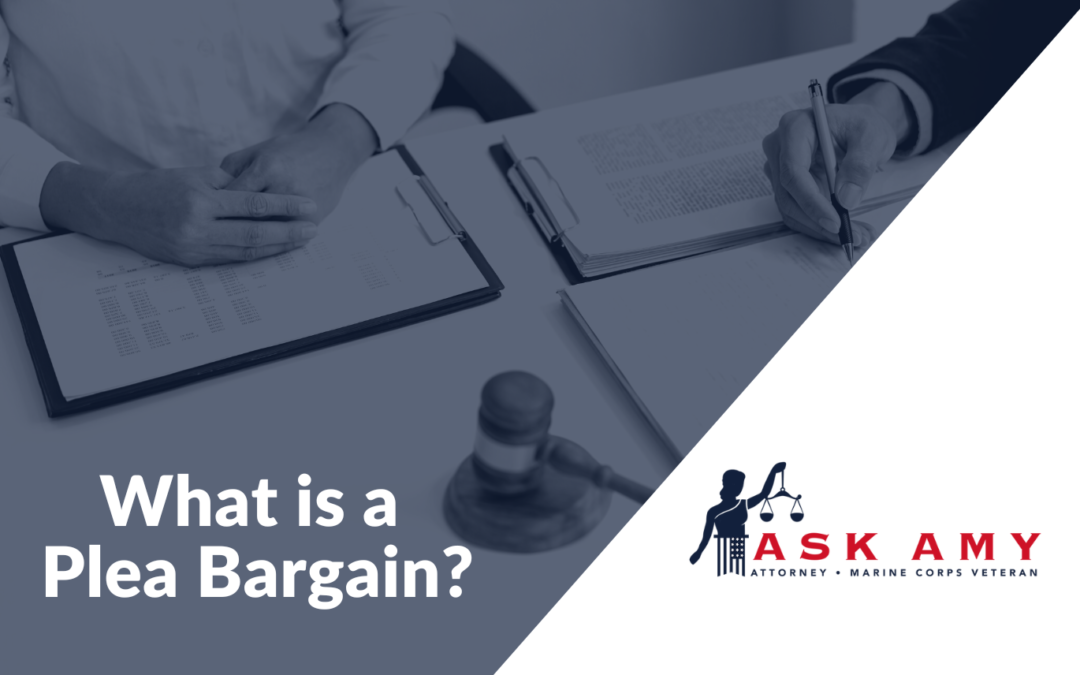What is a Plea Bargain?
A plea bargain is a deal struck between the defendant and prosecution in a criminal case in which the defendant pleads to a lesser charge, one of many charges or guilty as charged in the hope of a more agreeable sentence.
The plea bargain process begins with a meeting between the prosecutors and defendant’s attorney. At this meeting, an alternative offer, usually less severe than the results of taking the case to trial, is discussed. It often results in accepting a plea of guilty, or deferring the plea of guilty and being place on diversion or non-adjudication (later the charges are dismissed). If the plea bargain is accepted, all other trial-related events will be canceled and the trial will move straight into a sentence hearing for the guilty. This process cannot begin without first reviewing the evidence against the defendant in order to ensure there is a possibility of finding guilt.
It is important to note that, although plea bargains are common, they are merely a recommendation the court is not obligated to accept. A plea bargain can only move forward with the consent of both parties and, more importantly, the final approval of the judge presiding over the case.
What are the four common types of Plea Bargains?
- Charge Agreements: A charge agreement allows the defendant to choose which of their crimes they want to plead guilty to. Once the defendant has admitted to one or a multitude of crimes, all others will be dropped by the court and prosecution.
- Recommendation Agreements: A recommendation agreement states that the prosecution can either advise that a specific sentence be pursued or refrain from countering a specific sentence proposed by the defendant’s attorney.
- Specific Sentence Agreements: Under a specific sentence agreement, the judge will rule on a specific sentence that falls within the parameters of the court’s guidelines. In the event that it is appropriate for the judge to insist on a sentence outside of the normal guidelines, a ruling can be made. There must be justified purpose and specific reasoning to rule outside of the court’s guidelines.
- Fact Stipulation Agreements: A fact stipulation agreement states that a defendant can plead “no contest” or “nolo contendere.” Pleading no contest will find the defendant guilty without presenting the facts of the case to the court.
Why would a defendant accept a Plea Bargain:
There are a multitude of reasons a defendant would accept a plea bargain:
- Time and money: A court case is a lengthy, and costly process for every party involved. Accepting a plea bargain saves time and expense for the defendant, prosecution and the court.
- Unwanted attention: Court cases can bring unwanted attention to the defendant. Accepting a plea bargain allows the defendant to quietly admit and accept guilt without having to broadcast their crimes to the public eye.
- A harsh sentencing: A plea bargain is most commonly used by defendants as a way to avoid the entirety of their sentence. Pleading, in any variety of arrangements, typically guarantees the defendant a much more lenient sentence than the uncertainty of a trial.
Why would you need an attorney to help you with the Plea Bargain process?
The inner workings of a court can be difficult for individuals outside of law practice to understand. Attempting to negotiate your own plea bargain is a shot in the dark for defendants who are unfamiliar with the territory. Hiring an attorney will provide the defendant with a much firmer foundation going in front of a court. An attorney can help explain unfamiliar information along the way and will negotiate for the most favorable outcome on behalf of their client.
What should I do if I am seeking an attorney for a criminal case?
If you are facing a criminal charge and seeking legal representation, contact Pietrowski Law Practice today. Attorney Amy Pietrowski has extensive experience successfully defending a wide range of defendants and is committed to fighting for her clients.



Recent Comments